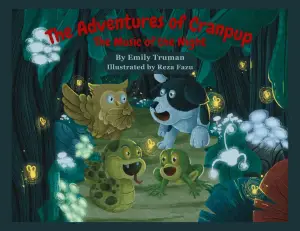Once Was Willem by M.R. Carey: A Journey Through Life, Death, and Found Family
Sometimes a book finds you when you least expect it. For me, M.R. Carey’s Once Was Willem arrived at the perfect moment, reminding me of the beauty that lies in unconventional narratives and the magic of human connection—even when that connection comes from the most unlikely places. Carey, known for his remarkable storytelling, has crafted a medieval fantasy that intertwines elements of horror with deep emotional resonance, a combination I couldn’t resist.
At its heart, Once Was Willem is a tale of transformation and acceptance. The protagonist, Willem, is not your typical hero. He is a boy who died young, only to be resurrected by the sorcerer Cain Caradoc. Yet, Willem’s return is not a fairy-tale resurrection; he emerges a mishapen monster, feared by the very villagers he once knew, even his own parents. This duality of life and death, along with Willem’s struggle to find acceptance, spoke to me on so many levels. We live in a world that often places value on appearances; Willy’s journey challenges this notion, weaving a compelling narrative about the true meaning of family.
Carey’s writing style is both meandering and deliberate—much like Willem’s own experience. The pacing of the story can feel slow at times, but this is a deliberate choice that allows readers to really savor the journey. At first, I found myself slightly frustrated by Willem’s frequent detours in the story. Yet, as Carey unfolds his tale, I realized that each sidestep is crucial, adding depth and complexity to the overall narrative. The weaving of the past with the present through Willem’s almost omniscient narration was particularly striking, giving readers a glimpse into the lives of others, as well as Willem’s own emotional turmoil.
One of the most rewarding aspects of the story is Willem’s relationships with his friends—Anna and Kel, Peter Floodfoot, and the ghost Morjune become his new family. These characters are beautifully developed, each with their unique backgrounds and struggles. This found family adds a rich layer of warmth and camaraderie to the story, resonating deeply with me as someone who values authentic connections with others. I especially fell for Unsung Jill, a character whose fearful monster status cleverly subverts expectations, mirroring the idea that often the most misunderstood souls are the most worth loving.
The visceral imagery and magic that Carey conjures are another highlight. I found myself wholly immersed in the village of Cosham and the forbidding Pennick Castle, experiencing the daily lives and battles of the villagers alongside Willem. There were moments of intense action where readers can breathe the heat of battle, sparred alongside sorcery and shocking twists of fate, including an unexpected trip to Hell that completely caught me off guard but turned out to be one of my favorite segments of the narrative.
If you’re looking for a gripping tale that encapsulates the themes of acceptance, the bonds of friendship, and the courage to face one’s fears, I highly recommend Once Was Willem. It might challenge you with its pacing and narrative style, but trust me, stick with it. You’ll find a story brimming with heart and an eclectic cast of characters who will stay with you long after you turn the last page.
As I closed the book, I felt a bittersweet emptiness—a longing to linger in the world Carey had built. Once Was Willem serves not just as a superbly crafted medieval fantasy but also as a reminder that true family is often found in the most unexpected of places. For anyone craving a unique adventure that deeply explores the concept of identity, love, and what it means to belong, this book might just steal your heart as it did mine.
[ad_2]
Discover more about Once Was Willem on GoodReads >>






